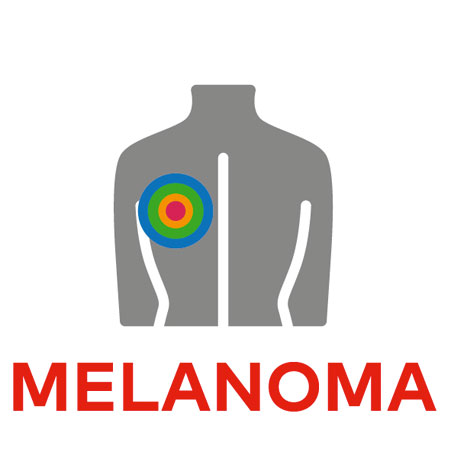
THE TEAM
Chief Clinical Investigator:
Dr Samra Turajlic – Consultant Medical Oncologist, Royal Marsden Hospital
Chief Scientific Investigators:
Dr Sergio Quezada – Group Leader, UCL Cancer Institute (CI)
Professor Charles Swanton- Consultant Medical Oncologist and Group Leader, Francis Crick Institute and UCL CI
Dr Samra Turajlic- Clinician Scientist, Francis Crick Institute
Co-investigators:
Dr Andrew Furness – Clinical Research Fellow
Dr Kroopa Joshi- Clinical Research Fellow
Dr Lavinia Spain- Clinical Research Fellow
Dr James Larkin- Consultant Medical Oncologist, RMH
Professor Martin Gore- Consultant Medical Oncologist, RMH
Professor Karl Peggs- Group Leader, UCL CI
Professor Kevin Harrington – Group Leader, ICR
Professor Alan Melcher- Group Leader, ICR
Dr Andy Wotherspoon – Consultant Pathologist, RMH
Dr Nicholas Francis – Consultant Pathologist, Imperial
Mr Myles Smith- Consultant Surgeon, RMH
Mr Dirk Strauss- Consultant Surgeon, RMH
Mr Andrew Hayes – Consultant Surgeon, RMH
Collaborators:
Professor Benny Chain – Group Leader, UCL CI
Dr Javier Herrero – Group Leader, UCL CI
Prof. Teresa Marafioti – Consultant Pathologist, UCLH
RELEVANT PUBLICATIONS
Menger L, Sledzinska A, Bergerhoff K, Vargas FA, Smith J, Poirot L, et al. TALEN-Mediated Inactivation of PD-1 in Tumor-Reactive Lymphocytes Promotes Intratumoral T-cell Persistence and Rejection of Established Tumors. Cancer Res. 2016 Apr 15;76(8):2087–93.
Fan X, Quezada SA, Sepulveda MA, Sharma P, Allison JP. Engagement of the ICOS pathway markedly enhances efficacy of CTLA-4 blockade in cancer immunotherapy. J Exp Med. 2014 Apr 7;211(4):715–25.
Furness AJS, Vargas FA, Peggs KS, Quezada SA. Impact of tumour microenvironment and Fc receptors on the activity of immunomodulatory antibodies. Trends Immunol. 2014 Jul;35(7):290–8.
Simpson TR, Li F, Montalvo-Ortiz W, Sepulveda MA, Bergerhoff K, Arce F, et al. Fc-dependent depletion of tumor-infiltrating regulatory T cells co-defines the efficacy of anti-CTLA-4 therapy against melanoma. J Exp Med. 2013 Aug 26;210(9):1695–710.
Quezada SA, Simpson TR, Peggs KS, Merghoub T, Vider J, Fan X, et al. Tumor-reactive CD4 + T cells develop cytotoxic activity and eradicate large established melanoma after transfer into lymphopenic hosts. J Exp Med. 2010 Mar 15;207(3):637–50.
Peggs KS, Quezada SA, Chambers CA, Korman AJ, Allison JP. Blockade of CTLA-4 on both effector and regulatory T cell compartments contributes to the antitumor activity of anti-CTLA-4 antibodies. J Exp Med. 2009 Aug 3;206(8):1717–25.
Quezada SA, Peggs KS, Simpson TR, Shen Y, Littman DR, Allison JP. Limited tumor infiltration by activated T effector cells restricts the therapeutic activity of regulatory T cell depletion against established melanoma. J Exp Med. 2008 Sep 1;205(9):2125–38.
Quezada SA, Peggs KS, Curran MA, Allison JP. CTLA4 blockade and GM-CSF combination immunotherapy alters the intratumor balance of effector and regulatory T cells. J Clin Invest. 2006 Jul;116(7):1935–45.
Śledzińska A, Menger L, Bergerhoff K, Peggs KS, Quezada SA. Negative immune checkpoints on T lymphocytes and their relevance to cancer immunotherapy. Mol Oncol. 2015 Dec;9(10):1936-65.
Zelenay S1, van der Veen AG2, Böttcher JP2, Snelgrove KJ2, Rogers N2, Acton SE2, Chakravarty P3, Girotti MR4, Marais R4, Quezada SA5, Sahai E6, Reis e Sousa C7.
Cyclooxygenase-Dependent Tumor Growth through Evasion of Immunity. Cell. 2015 Sep 10;162(6):1257-70. 3.
Furness AJS, Joshi K, Peggs KS, Quezada SA. Biomarkers of Response to Immune
Modulatory Therapies in Cancer. J Clin Cell Immunol 6:347. doi:10.4172/2155-9899.
Martin-Liberal J, Furness AJ, Joshi K, Peggs KS, Quezada SA, Larkin J. Anti-programmed cell death-1 therapy and insulin-dependent diabetes: a case report. J. Cancer Immunol Immunother. 2015 Jun;64(6):765-7.
Joshi K, Larkin J, Gore M. Malignant melanoma. Treatment of Cancer Sixth Edition. Oct 2014; 509-520.

